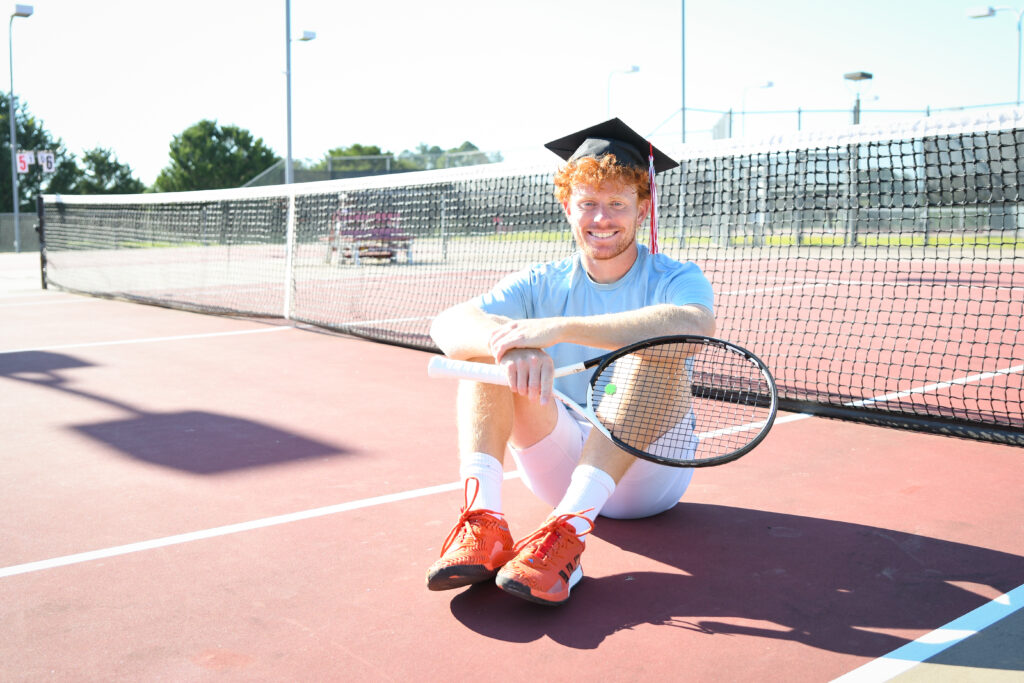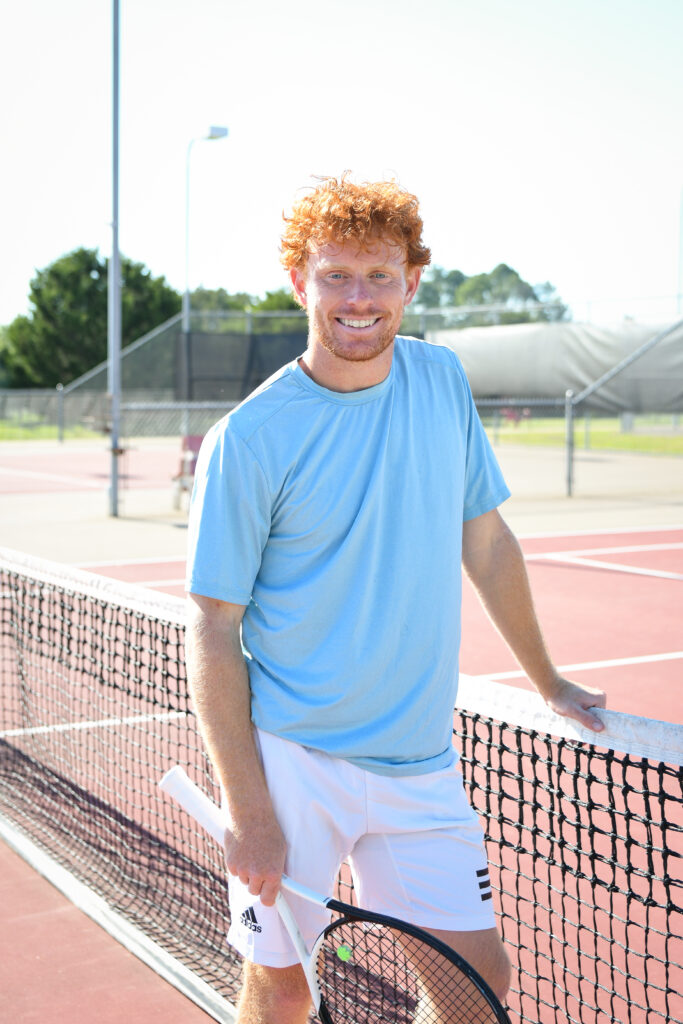
Story: Lisa Sollie | Photo: Cody Ingram
Lucas Hammond can’t remember when tennis wasn’t part of his life. As a toddler, he would often sit in a basket on the court at the tennis club and hand his dad tennis balls. When he was old enough to hold a racket, he started playing. Now the exercise science major from Las Vegas, Nevada, has his sights set on playing the sport professionally after graduating from the University of West Alabama in May.
Hammond almost lost his chance to play at the collegiate level when halfway through his junior year of high school he tried to play tennis full-time and do his school coursework online to get more court hours.
“For me, it wasn’t a good balance. I struggled to concentrate on my school work and soon found myself in a hole academically,” Hammond recalls. He spent one semester in-person at the College of the Desert, a public community college in Palm Desert, California, before the pandemic pushed him to online classes again, but this time, he was prepared. “My grades may have kept me from playing on a bigger stage after high school, but the pandemic effectively stopped everyone from playing,” he noted, “so I returned home, focused on my studies, and raised my GPA.”
After earning an associate degree, Hammond sent out resumes to locate any college or university with a spot for him on their team. One of his former coaches connected him with UWA Head Tennis Coach Jeff Beaman, “and he told me there was a place for me in Livingston where I could earn a degree and play high-level tennis. I came and checked it out, and since I wanted to play and UWA would allow me to do that — I went for it.”

UWA has been a good fit for Hammond, not just on the court. His advisor, Dr. Catalina Casaru, associate professor of exercise science at UWA, has been with him every step of the way since he started at UWA at the same time she joined the faculty. “She understood I wanted to be successful in the classroom and worked with me to accomplish my academic goals.” Exercise science majors are also required to complete an internship and Casaru helped him find one with Ian Dukehart, director of athletic strength and conditioning at UWA. For Hammond, interning with the program reminded him of the conditioning coach he had back home, who had helped him with his physical development. “That coach,” he said, “is part of the reason I decided to study exercise science.” During his internship, ‘Coach Duke’ and his three graduate assistants demonstrated for Hammond how to build strength and conditioning programs for UWA’s various sports teams. “I am grateful I had the opportunity to ask a lot of questions as well as share my insights in the process. There’s a lot of give and take between the coaches and the athletes,” he noted, “and as an intern, it was an adjustment for everyone to view me as another ‘coach’ and not as an athlete. In the end — it’s all about building relationships and trust.”
Building relationships and establishing trust have been central themes for Hammond since he stepped foot on UWA’s campus. As one of only a few Americans on the tennis roster at the university, bonding with his international teammates was vital to him. During his first year at UWA, Hammond recalled the team’s upper-level students pushed the players to have team practices, grab a bite to eat, and do anything they could do together. “I’m grateful they did that, because even though my teammates are from eastern and northern Europe, South America, Mexico and Africa —we discovered, after making time to come together and learn from one another, that we have much more in common than our differences. These guys are lifelong friends and family, and they’ve assured me if I ever get to play tennis professionally,” he added, “I’ve always got a place to stay.”
There are no directions or even a clear definitive path to going pro, he acknowledged, “so it’s been tough psychologically because there are so many twists and turns I still have to navigate,” including entering the NCAA Transfer Portal looking to expand his connections. “But for now, I need to finish the tennis season and graduate.”
What’s next for Hammond is anyone’s guess. “I’m just going to keep my mind and options open, because I know my family is behind me 100 percent and I can tap into connections and resources if needed — and that’s good enough for me.”